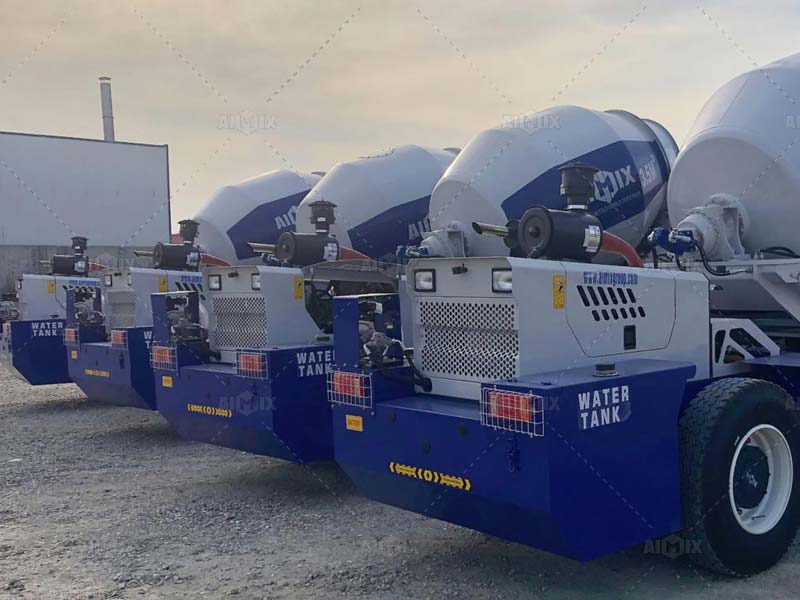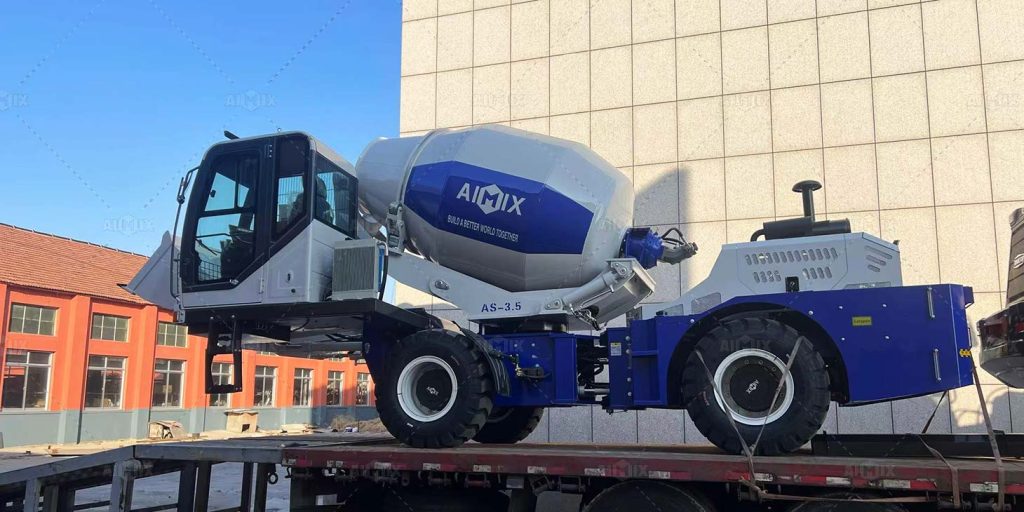Road conditions play a pivotal role in determining the performance and durability of self-loader mixers, essential equipment in the construction industry. Understanding the effects of different road conditions is crucial for optimizing operation and maintenance practices.
Impact of Rough Terrain on Self-Loader Mixer Performance
Navigating through rough terrain poses significant challenges for self-loader mixers, affecting their performance and efficiency. Several factors come into play when assessing the impact of rough terrain on the self loader mixer:
Stress on Suspension and Chassis Components
Rough terrain subjects self-loader mixers to increased stress and vibrations, particularly on their suspension and chassis components. The continuous jolts and bumps experienced during operation can lead to accelerated wear and fatigue, affecting the overall stability and longevity of the equipment.

Decreased Maneuverability and Control
Uneven surfaces and obstacles on rough terrain diminish the maneuverability and control of self-loader mixers, making it challenging for operators to navigate safely. Limited traction and unpredictable terrain conditions may result in decreased productivity and potential safety hazards if not managed effectively.
Impact on Concrete Mixing and Transportation
The stability and consistency of concrete mixing processes can be compromised when concrete mixer for sale in Ghana operate on rough terrain. Vibrations and movements induced by uneven surfaces may affect the quality of concrete mixtures, leading to variations in slump, homogeneity, and workability. Additionally, transportation of concrete to construction sites may experience delays or disruptions due to obstacles and terrain limitations.
Effects of Adverse Weather Conditions on Self-Loader Mixer Durability
Adverse weather conditions present another set of challenges for self-loader mixers, impacting their durability and overall performance. The following aspects highlight the effects of adverse weather conditions on these machines:

Corrosion and Rusting
Exposure to moisture, salt, and other corrosive elements in rainy or coastal environments can accelerate corrosion and rusting of self-loader mixer components, particularly metal parts such as chassis, drums, and hydraulic systems. Proper maintenance and protective coatings are essential for mitigating the effects of corrosion and prolonging the equipment’s lifespan.
Temperature Extremes and Material Integrity
Extreme temperatures, whether hot or cold, can affect the integrity of materials used in self loading concrete mixer for sale UK, such as rubber seals, hoses, and hydraulic fluids. High temperatures may cause premature aging and degradation of rubber components, while freezing temperatures can lead to stiffness and reduced flexibility, impacting operational efficiency and safety.
Visibility and Operator Safety
Poor visibility and adverse weather conditions, such as heavy rain, fog, or snow, pose safety risks for self-loader mixer operators. Reduced visibility increases the likelihood of accidents and collisions, emphasizing the importance of equipped safety features and operator training to navigate safely in challenging weather conditions.
In conclusion, varying road conditions, including rough terrain and adverse weather, significantly impact the performance and durability of self-loader mixers in the construction industry. By understanding these effects and implementing appropriate maintenance and operational strategies, construction professionals can optimize the efficiency and longevity of these essential equipment in diverse working environments. Find reliable equipment in AIMIX Group: https://concretemixerwithpump.com/self-loading-mobile-concrete-mixture/.